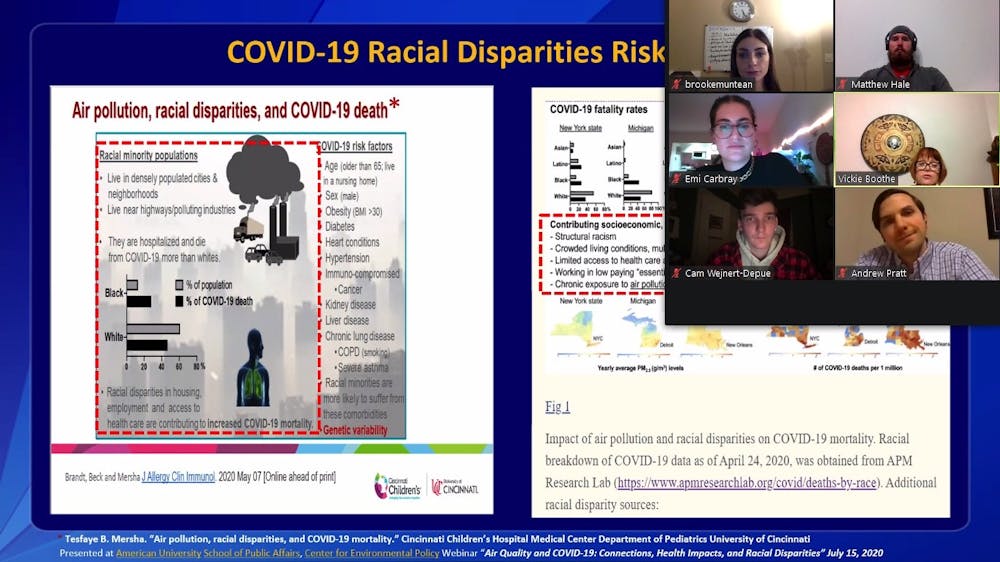The Climate and Conservation Policy Club (CCPC) began with a question: “How can we practice more policy skills outside of the classroom?”
CCPC is a new bipartisan club “focused on engaging students in conservation policy,” according to co-president Emily Carbray.
CCPC was founded in the fall semester and has conducted operations entirely online, according to co-president Andrew Pratt. Although the online platform has restricted the club’s options, it has resulted in some positives as well, Carbray said.
Carbray and Pratt are both graduate students in the Master of Public Policy program in the School of Public Affairs. Being online has allowed for the undergraduate, graduate and doctoral students in the program to be involved. Any student, regardless of where they live, can join the club because the meeting is just a click away, according to Carbray.
“[Being virtual] has increased the availability of guest speakers and people who are willing to donate their time to our club because they have no reason not to — they can Zoom from their kitchen,” Carbray said.
CCPC hosts meetings every Thursday at 8:30 p.m. on Zoom. Each week rotates between a formal meeting and a meeting consisting of a game night and happy hour, which are meant to help members take time off from their academic work, according to Carbray.
During formal meetings, members engage in discussions about various environmental policy issues, listen to guest speakers, collaborate with other AU environmental clubs or help with research for the club’s semester-long policy project.
The club collaborates with the nonprofit Democracy Policy Network, “an interstate network that organizes policy support” for state legislators that support a “shared government vision,” according to Pratt. CCPC helps the organization with research for its State Green New Deal “policy kit.”
CCPC also hosted a guest speaker this semester, Vickie Boothe, who works in “Cancer Alley” in southern Louisiana studying air quality, according to Pratt. “Cancer Alley” has numerous industrial plants causing poor air quality, which has led to high rates of cancer.
The co-presidents hope to expand their discussion and research-based meetings into action.
“Once we go back in person, we want to do a lot of interclub collaboration and hopefully build off the sustainability work on campus,” Carbray said.
Carbray believes climate-conscious students should push the University to do better when it comes to climate action. She also advises students to vote for political candidates that aspire to enact climate policy.
“This is our opportunity to show the strength of collaborative actions, whether that be joining this club or finding your voice through some other form of advocacy,” Pratt said. “It’s a great opportunity, while these issues are at the forefront of people’s minds, to make your voice heard so substantive change can happen in the long and short term.”





